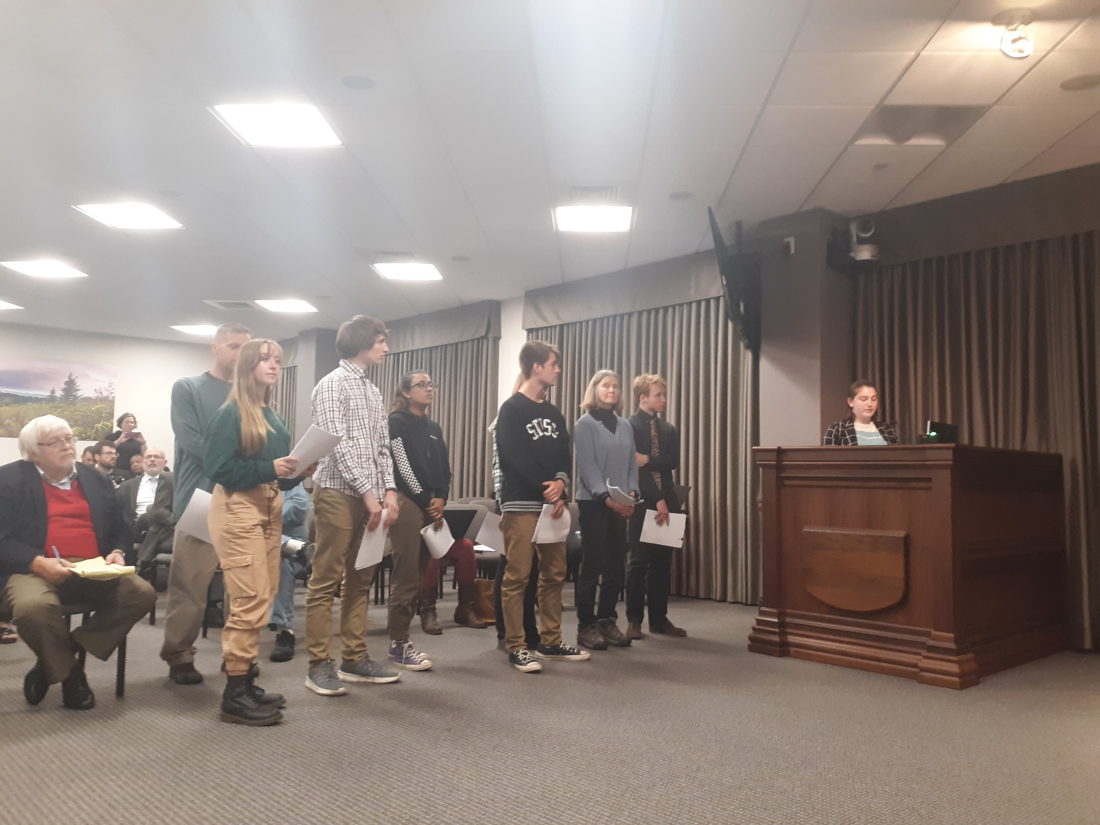“This shouldn’t even be in here right now,” remarked Commissioner Mike Fryar, as the Buncombe County Board of Commissioners prepared to vote on a request for proposals to install more than $2.9 million in solar panels on county-owned facilities. Noting that solar wasn’t explicitly mentioned among the top priorities in Buncombe’s still-developing vision for the next five years, he said, “This was not on a plan. Period.”
The commissioner’s colleagues, however, soundly disagreed with his assessment. In a 6-1 decision, with Fryar as the lone dissenting vote, the board approved the RFP at its Nov. 5 regular meeting. Chair Brownie Newman said the county had previously prioritized clean and renewable energy and that the move was an important step in Buncombe’s plan to power all government operations with renewable energy by 2030.
“It’s a modest step. We still have a lot of other things we’re going to need to do just to get to our own government goal,” Newman acknowledged. “But getting to that 100% goal — you have to get started.”
During public comment on the plan, students from the county’s high schools and UNC Asheville delivered several petitions with hundreds of signatures backing renewable energy. They were supported by representatives from Asheville GreenWorks and the Western North Carolina Sierra Club, as well as local activists representing the national Sunrise Movement.
Many of the speakers urged the commissioners to act even more decisively on transitioning away from fossil fuels in the context of climate change. Chloe Moore with the Sunrise Movement referenced a scientific paper, published earlier that day, in which over 11,000 scientists from 153 countries declared a “climate emergency” and warned of “untold suffering due to the climate crisis” if stronger measures were not taken.
“They didn’t do this to make money or to gain political power — they did this because the way we are living is putting our whole world in danger, and the science is extremely clear,” Moore said. “This motion is not enough. We need to go further than that. … It is your responsibility, because our safety is in jeopardy.”
In other business
Board members wrapped up several additional loose ends over their nearly four-hour meeting. In another 6-1 vote with Fryar in the opposition, commissioners approved changes to the county’s Strategic Partnership Grant program first discussed on Oct. 15.
Commissioner Amanda Edwards had spearheaded the revisions in an effort to create more transparency and fairness for nonprofits seeking county support. Fryar, however, argued that the language was “not totally understandable” and needed more explicit detail around how projects would be funded equitably across commission districts.
After almost an hour of discussion, the commission voted unanimously for a series of modifications to its contract with residential waste collection contractor Waste Pro designed to ease residents’ worries about bear-proof containers and service in rural areas.
Fryar and Commissioner Joe Belcher, however, remained concerned that a program to subsidize premium service for 700 elderly, low-income residents with a “difficult driveway” wouldn’t meet demand. Belcher proposed an amendment to the contract, which his colleagues approved, to include a review of that program’s capacity on Monday, April 1.
And although it criticized the proposal in December, the board unanimously funded an extension of Asheville’s transit service beyond city limits along Leicester Highway. Roughly $29,000 from the county’s federal grant funds will be directed to the city for the new route, which is estimated to serve 690 residents and give access to 190 jobs.




Proud of these young people! They give me hope.